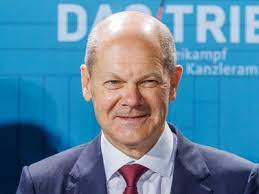German Chancellor Olaf Scholz expected some very difficult negotiations at the upcoming G20 summit on the Indonesian island of Bali.
Scholz said in Singapore on Monday that he and other world leaders would work very hard to achieve results on climate change, health, hunger crises and the economic situation.
But the consequences of Russia’s war on Ukraine were also on the agenda.
“This is going to be a tough ride, adding that it is difficult to foresee what the final outcome will be,’’ he stressed.
Scholz was still planning to fly from Singapore to Bali late on Monday to attend the summit of leading economic powers in Nusa Dua.
He made his comments at a news conference with Singaporean Prime Minister Lee Hsien Loong, whose country is also attending the summit as a guest.
The head of government of the South-East Asian city-state does not expect a breakthrough on any of the difficult summit issues.
“We are in danger. On climate, we are heading in the wrong direction.
“On geostrategic issues, the problems are worsening rather than improving.
“We need to make progress,’’ he said.
Earlier, Scholz said at a business meeting focusing on reducing Germany’s economic dependence on China that Asian and Pacific countries should intensify economic cooperation,
“The Asia-Pacific region is much more than China,’’ Scholz told the conference of German business interests in the region.
It was the second day of an Asia trip by Scholz that will culminate in the G20 summit in Bali.
“My message is: Germany would like to strengthen economic ties with your region,’’ the German leader told participants.
He attended together with German Economy Minister Robert Habeck.
Scholz stressed that, while he was not striving for an uncoupling from China, the recent Communist Party’s Congress in Beijing had shown how much the country had changed during the past five to 10 years.
“Our political and economic approach must take this into account,’’ Scholz said.
China would naturally remain an important economic and trade partner for Germany, the chancellor said.
“But it always takes two to tango.’’
Scholz announced that reducing unilateral dependencies on certain raw materials and important technologies would play a special role in Germany’s national security strategy, which is currently being developed.
He said in order to ensure secure supply chains, trade relations would have to be broadened.
In his speech, Scholz also referred to the global impact of the Russian invasion of Ukraine.
“Strengthening our cooperation is crucial because we all feel the geopolitical ground shifting beneath our feet,’’ he said.
He added that the war threatened the global peace order.
“That is why it is so important that we do not let Russian President Vladimir Putin get away with his imperialist aims.’’
Scholz arrived in Singapore on the heels of talks with the government in Vietnam.
This is Scholz’s third trip to Asia in 11 months, following two brief visits to Japan and China.
Unlike his predecessors, Scholz deliberately did not pick China for his first Asian visit, but rather democratic G7 partner Japan. (dpa/NAN)


